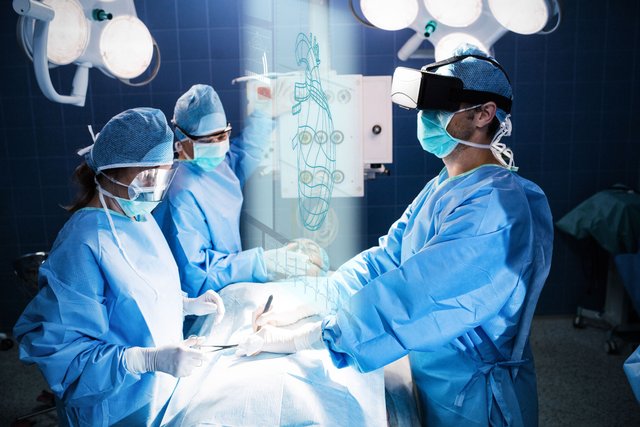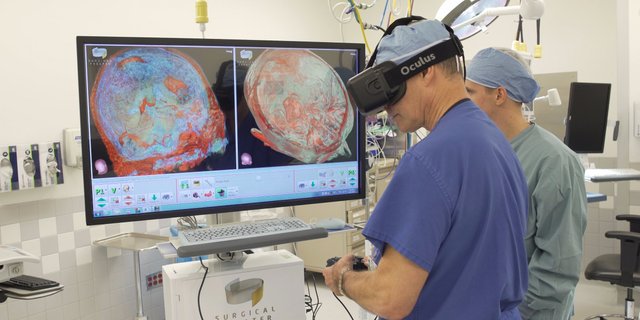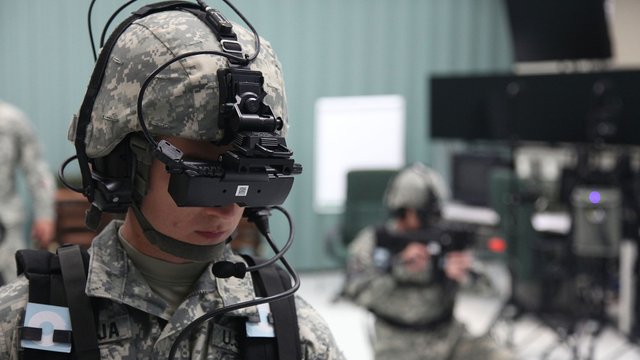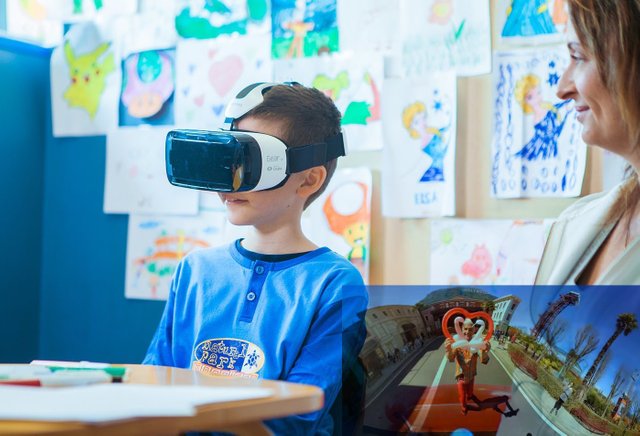Virtual Reality - The technology changing medicine forever!
Virtual reality has been the next big technological advancement that has got us tech minded individuals incredibly excited and intrigued at the vast amounts of possibilities that VR bring our modern world. And, while much of the focus of what I read tends to be about how VR will transform gaming, music and film, VR has a much wider scope to benefit society.
Today's blog post will breakdown discuss the amazing benefits VR can bring the medical industry through practical application.
Medical Education and Training
VR technology effictively has the ability to make medical text books become almost real. Students are able to take a virtual tour of different parts of the body using a simulation, helping them to visualise and learn about the organs or muscles in a much more practical and memorable way.
This type of learning has already been proven to provide massive benefits to medical students by Kockro et al. (2015). He split students into two different groups, one learnt through a traditional lecture format, while the other group learnt through a VR simulation. Both groups were then examined with the same exam, the results overwhelming found students who were in the VR group had higher test scores. This type of study is begging to highlight the true benefits VR orientated learning can bring to education.
Trainee surgeons are also benefiting massively through VR technology, as it enables them to practice in a safe environment that emulates the experience of a real surgery as close possible. It can even be used to help professional surgeons practice and trial new and un-tested surgical procedures, helping to prepare them as much as possible and ultimately increasing surgery success rates.
Phobia and PTSD Treatments
People who suffer from irrational phobias such as flying on a plane (aviophobia) or a fear small spaces (claustrophobia) can benefit greatly from VR treatments as it can be used to emulate the environment that sets of their phobia. Gradually exposing the patient to the environment through VR allows them to feel safe but also pushes them out of their comfort zone helping them to confront their fears in a constructive manor. Research into this VR application are currently being done at the University of Louisville, who are having great success with the treatment programme.
Post traumatic stress disorder (PTSD) affects around 7.7 million US adults and is a big worry for veterans returning home from combat. Common noises such as a door closing or even smells can act as a trigger for someone suffering from PTSD, this can have devastating affects on peoples day to day lives. Much like the phobia treatment mentioned above, VR treatments are being tested to help veterans deal with the traumatic experiences they may have witnessed, and helping reduce the triggered behaviours which can be having devastating negative consequences on their lives.
Autism
I am sure most of you are aware of what autism is, but for those that don't it affects around 1/100 people in the UK and is on a spectrum, meaning not all people with autism are affected the same way. However, people suffering from autism predominately struggle with not being able to understand social interaction and not being able to communicate with others effectively.
Virtual reality treatment programs allow those suffering from the condition to learn social interaction in a safe place by putting them in common social situations they would find challenging, such as a job interview. By helping them learn and understand social cue's it can help develop their overall social awareness, allowing them to feel much more confident in their daily lives. Researchers at the University of Texas, Dallas have found those patients who were involved in such treatments experienced an increase in brain activity in areas relating to social interaction.
This post just touches the surface of the incredible opportunities virtual reality technology can bring to the medical profession. Let me know, what do you Steemie's think about the potential practical applications of VR in today's modern and future world?
If you enjoyed this, then you might like my previous posts!
Well, Now You Know - #6 What Causes a Tornado?
Is-ching-shih-the-most-bad-ass-women-in-history?
What was the worlds most successful unsolved art heist?
The amazing power of music and how it affects the brain
Back Soon
Will




wow
Amazing isn't it :)